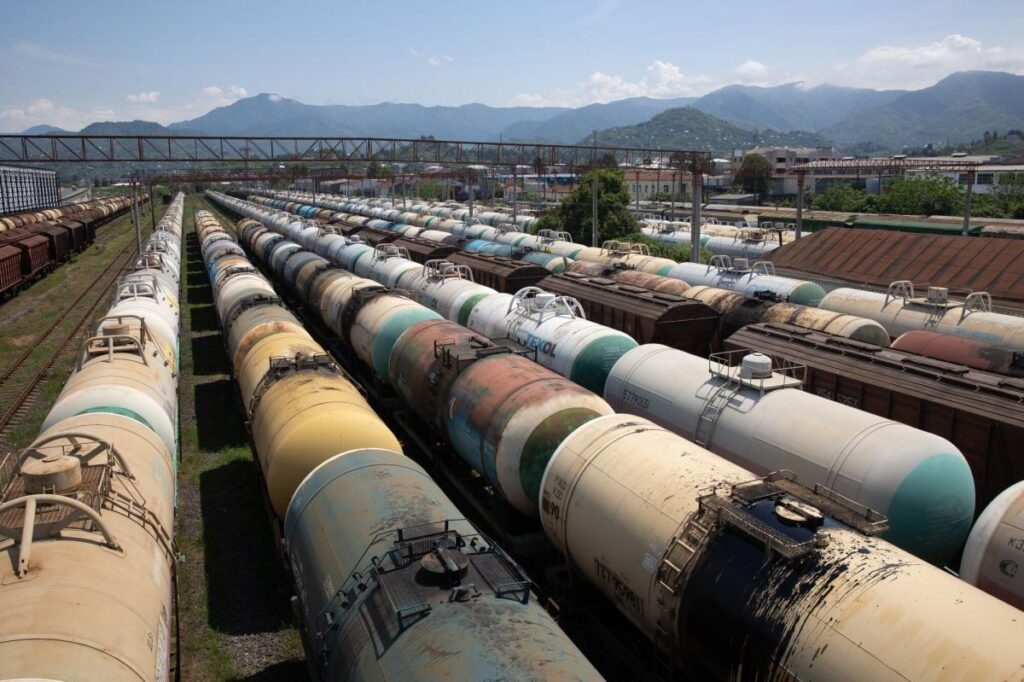European Union Energy Commissioner Kadri Simson issued a firm warning to energy companies regarding the risks of pursuing new gas deals with Russia, labeling such decisions as “dangerous.” During a news conference following a meeting of EU energy ministers, Simson emphasized that the EU is capable of functioning without Russian gas, directly calling the choice to engage in further deals a political one fraught with peril. This statement comes in the context of expiring gas transit agreements between Moscow and Kyiv, set to conclude on December 31, as negotiations are ongoing to ensure continued gas flows through the pipeline. Despite the urgency of the situation, a resolution appears elusive, with less than three months remaining for negotiations.
Both Ukraine and Russia have expressed willingness to explore options that might incorporate gas supplies from Azerbaijan. However, there are growing concerns that Russian gas could be covertly mixed with these alternative supplies, potentially undermining the integrity of the gas market and complicating the situation further. Simson, nearing the end of her term as energy chief, underscored the European Commission’s readiness for a total cessation of gas transit through Ukraine, citing the availability of alternative supply routes and robust gas storage capabilities within the EU. This proactive stance indicates a shift toward energy independence and resilience against the backdrop of geopolitical tensions.
The implications of potential new gas deals are profound, with Simson highlighting that costs associated with dealing with Russia extend beyond financial metrics. She poignantly reminded stakeholders that the impact of these decisions could result in loss of life, emphasizing the human cost intertwined with energy issues. As negotiations between Moscow and Kyiv remain sluggish, EU officials have taken a firm stance against entering into fresh talks, reflecting a broader desire to decouple from dependence on Russian energy supplies. The approach aligns with ongoing European efforts to diversify energy sources and enhance energy security across the continent.
According to insiders familiar with the proceedings, for Ukraine’s extensive pipeline system to function smoothly, gas transit volumes must adjust to approximately 10 to 11 billion cubic meters. This target is notably five billion cubic meters lower than the current transit levels, highlighting the logistical challenges that the region faces in maintaining stability and reliability in gas flows. The situation is further complicated by the urgent necessity to secure alternative gas sources from neighboring countries, while navigating the complexities of existing geopolitical allegiances.
The implications of the impending gas agreement expiration are substantial for both Russia and Ukraine. With Ukraine’s gas infrastructure integral to Russian gas exports to Europe, any disruptions could have cascading effects on energy markets and the broader European economy. As the clock ticks down to the end of December, energy ministers and industry stakeholders remain under pressure to forge agreements that would mitigate the risks associated with declining Russian gas flows while respecting the political climate and addressing public sentiment across the EU.
In summation, the warnings from Commissioner Simson encapsulate the urgent need for the EU to assess its energy dependencies and make strategic choices moving forward. As negotiations between Russia and Ukraine evolve amidst a backdrop of political uncertainty and potential conflict, the focus must remain on ensuring energy security and safeguarding the livelihoods of European citizens against the stark realities of geopolitical strife. The EU’s commitment to diversifying its energy sources while preparing for worst-case scenarios reflects a new era in European energy policy, one that prioritizes resilience, sustainability, and human welfare above all.

